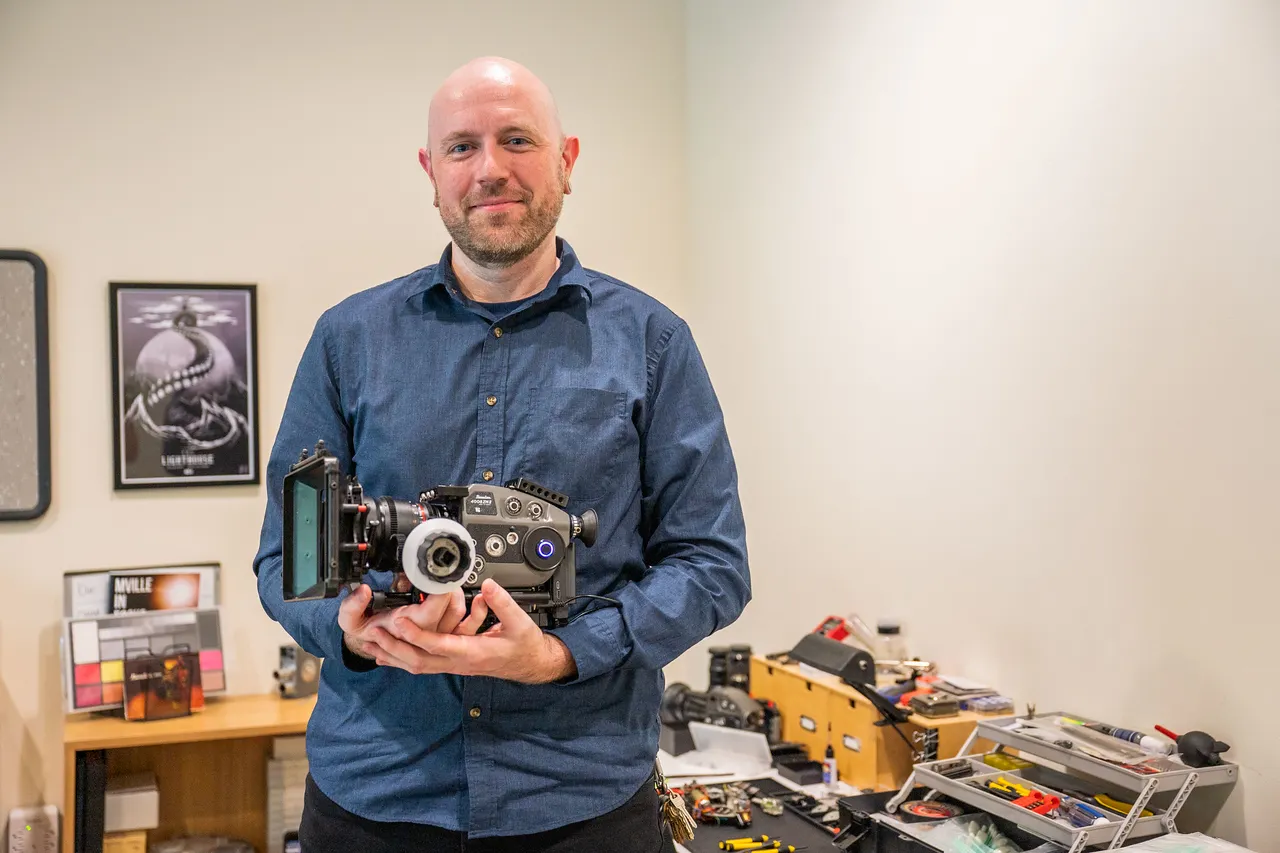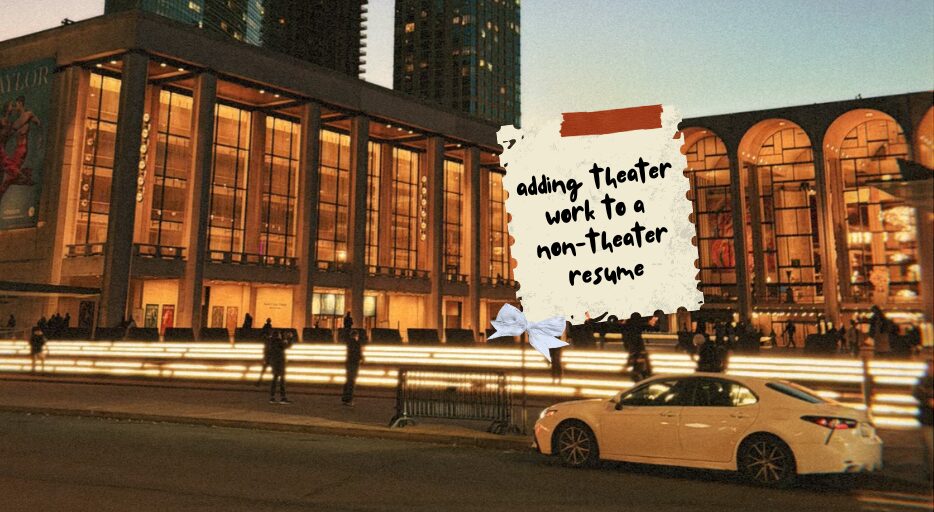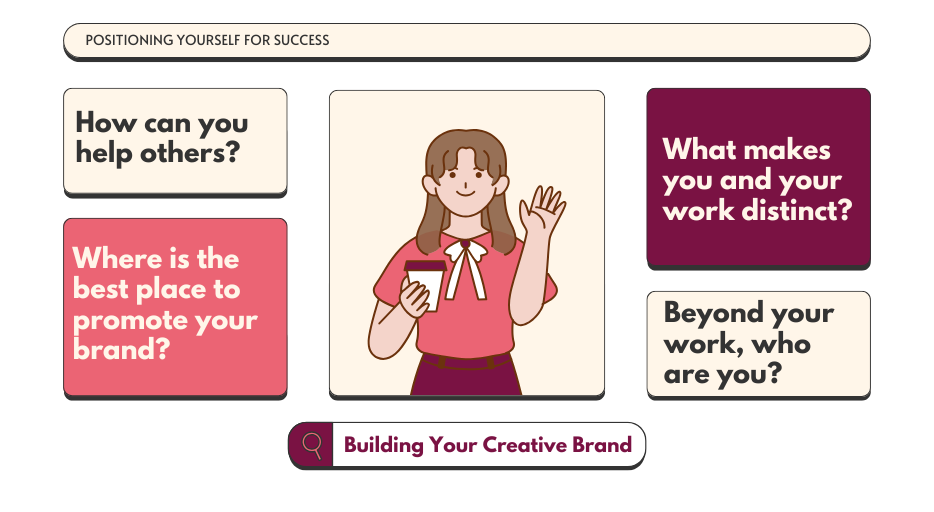Professor Michael Castaldo, Lecturer/Technology Specialist, has taught media production classes for nearly the past decade at Manhattanville College. From video production to podcasting, senior capstone to computer graphics, Professor Castaldo has always tried to instill a can-do attitude in his students, despite any obstacles thrown at them. Castaldo’s latest project outside the classroom demonstrates that he not only preaches this belief but leads by example.
As a working professional, Castaldo stays active in the film industry by consistently working on independent projects and attending events like film festivals. One particular festival, straight 8, caught his eye. Using what can be described as an equivalent to a film camcorder and a singular reel of super 8 film (roughly fifty feet, or three and a half minutes of film), the festival shows films shot with no edits, retakes, or post-production – what is filmed is what is shown. The top films would then go on to be shown at Cannes Film Festival.
“I was going through a lot of them and I realized that they were all the same kind of video,” said Castaldo, realizing that he could improve upon what he had seen. He then began to work on a film for the festival, but quickly realized the project would not be a good fit when his script turned out twelve minutes too long. While he abandoned the concept of submitting to this particular film festival, he quickly began a new project, still using super 8 film and the “gritty” feeling that comes with it.
After Castaldo finalized his script concept, he realized: “What I wrote could not possibly be done on past super 8 cameras. My goal was to find a super 8 camera and modify it to make it work with what I needed for the film.”
After an eBay search, Castaldo was able to locate a broken camera, then clean and prep it for modifications. He is currently in the process of modifying the camera, but so far has made several changes to make the camera more functional and simpler to operate. The most significant of the changes thus far has been rewiring the camera to use readily available Sony batteries, rather than the original proprietary batteries which needed to be custom made since the camera is out of date. Super 8 cameras can be relatively limited in terms of lens and focal length (zoom) options, so Castaldo’s next step was to change the lens mount to be able to use modern lenses designed for mirrorless cameras. With this, a focal reducer needed to be added to compensate for the change in lens type, which comes with the added effect of better functionality in darker situations. The final major modification was the connection of a video tap, which is a way to see the image on a video monitor before and during recording to allow for a cleaner preview. The video tap also allows for a more accessible setup in tighter spaces where looking through the viewfinder may not have been possible. While common on current digital cameras, this has never been an option for consumer model super 8 cameras.
“A lot of these things that I’m trying to do are completely new to the medium, which is pretty exciting. It took a lot of trial, error, re-engineering, figuring out if there’s even enough space to do that sort of thing, if it’s going to inhibit other mechanical functions inside the camera. I knew none of this stuff before the pandemic. The pandemic pushed me into doing something like this and gave me the time to buy something, take it apart, see how it works, and adjust. It was a lot of trial and error, but that was sort of the fun in it. I was always the kind of kid that liked to take things apart, I just never knew how to put it back together. Now, I’m realizing the importance of putting it back together.”
Before Castaldo can start filming, he intends to modify not one, but three super 8 cameras: the first having all modifications and the new lens system; the second having all modifications but the original lens system; and the third being completely “stripped down” so it can be lighter for use with equipment like drones and cranes. Once the film is complete, it will be submitted to film festivals and eventually released online for the public to view. “I think because of the uniqueness of this particular project, I hope it garners a different kind of notice. That’s really the whole point of festivals to me, to network and meet other filmmakers and get an idea of what they’re doing, get an idea of what I’m doing, and hopefully have someone that can help with the next film. This short is also kind of a proof of concept, so if it gets the right attention and people like what it is and how it works, it could potentially turn into something a little bit larger.”
Back in the classroom, the spirit of this project translates into every class Castaldo teaches. During the pandemic, Castaldo had to make modifications to all of his media production courses as students started learning video production, podcasting, and editing from home. Now that students are back in the classroom, he still encourages his students to find creative solutions using the equipment and technology available to them.
“I am under the understanding that we can do it, regardless. Hollywood has a specific way of making films, and that’s because it’s tested and true over decades. But they also have the luxury of having lots of money, backing, and person power. We as students, or independents, we don’t have the luxury of all that. There’s no one way to make a film, it’s how you make it work. In 2022, we have the ability to do that, I don’t want to say easily. It takes work and time, but there’s nothing holding us back from achieving what we want. At the end of the day, it works. The only thing you can do as a professor is make the world more open. If you’re going to fail anywhere, college is the time to do it, especially in this industry. Just go out and try it. When it comes to the learning experience, it’s just a matter of putting your mind to it and doing it. Write what you can do, do what you can write, and if you can’t do it, let’s figure out how to make it work.”
Professor Michael Castaldo is currently teaching Intro to Video Production, Broadcating & Podcasting, Senior Capstone, and Computer Graphics at Manhattanville College. His most recent short film, Plight of the Timeguard, is currently in the submission process to festivals. His current project is in the final stages of writing and is set to be filmed next fall.





Leave a Reply